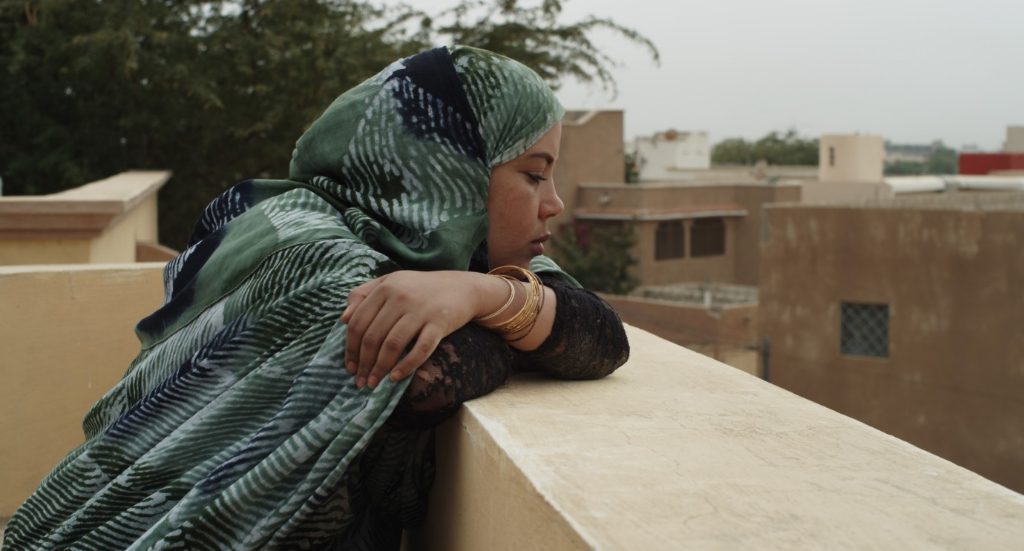Flesh Out

Ten meals a day. This is what Verida (Verida Beitta Ahmed Deiche) is lovingly, and later more forcefully, fed by her mother. Flesh Out is Michela Occhipinti’s latest exploration into the practice of gavage in Mauritania. It is an intensely beautiful film with truly astounding imagery, which addresses, paradoxically, what Occhipinti presents as an ugly practice.
Gavage is the custom, re-popularised in Mauritania where this movie is set, of force feeding a bride-to-be a few weeks ahead of marriage. The narrative follows Verida through this very process, which she initially undertakes willingly, but soon becomes disillusioned with.
The film’s opening shot shows the young protagonist drinking a large bowl of milk, to be followed by the images of her mother’s painstaking procedures of feeding her. Even before the audience is aware that this is part of a violent undertaking, Occhipinti immediately acknowledges the complexity of this mother and daughter relationship through feeding – something that she sustains as the picture continues. The desire to nourish those whom we love is a behaviour that gavage utterly perverts. Occhipinti skilfully depicts this process of perversion, but without hollowing it of its initial tenderness. The viewer is made very much aware that the preparing of the food is as much a labour of love as well as of torture, a complexity the director does not shy away from.
The process of gavage, and the celebration of the large female body, flies in the face of Western and Eurocentric beauty standards. The film also takes time to address this glaring juxtaposition, although it could have been interesting had it been further interrogated. It is, sadly, rare that we see women enjoying food on screen, or in fact eating at all convincingly. Again, Flesh Out both maintains and challenges this standard. Verida’s eating is all too convincing, inspiring a genuine concern for her, not just as a character but as an actor, as a body. Western beauty standards then are epitomised by the skin-bleaching cream used by Verida’s closest friend Amal (Amal Saab Bouh Oumar), implying the harm done to women’s bodies the world over, in the pursuit of desirability.
Stunningly shot and powerfully conveyed, Flesh Out, is saturated with beautiful imagery (the final shot is inexplicably powerful). It addresses gavage with an admirable level of nuance and insight, and for that is well worth the watch.
Fenja Akinde-Hummel
Flesh Out does not have a UK release date yet.
Read more reviews from our Berlin Film Festival 2019 coverage here.
For further information about the event visit the Berlin Film Festival website here.






















Facebook
Twitter
Instagram
YouTube
RSS